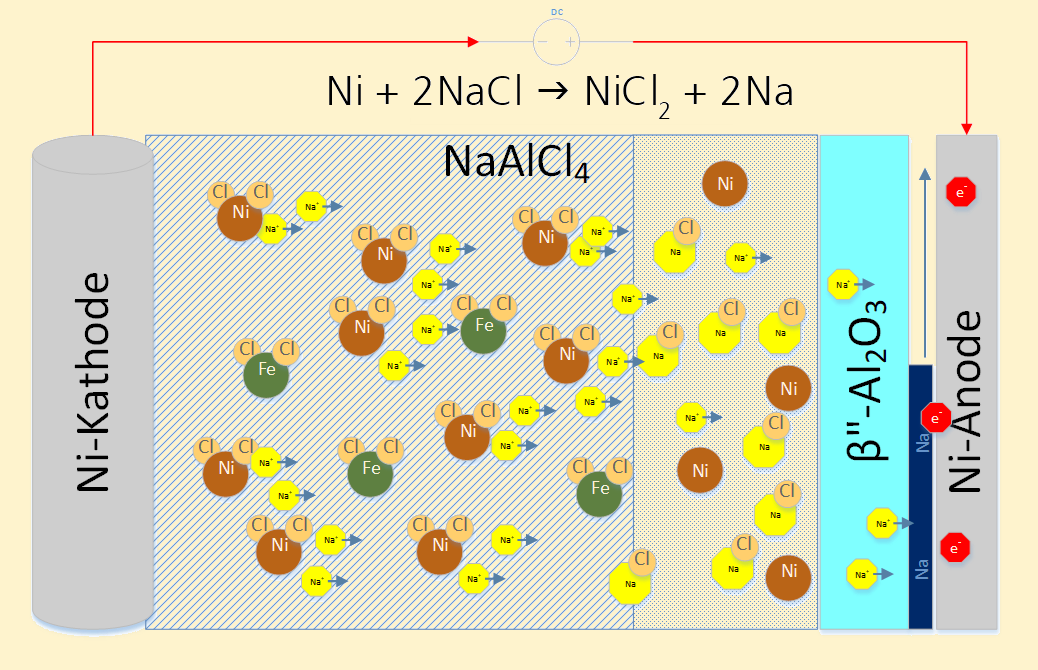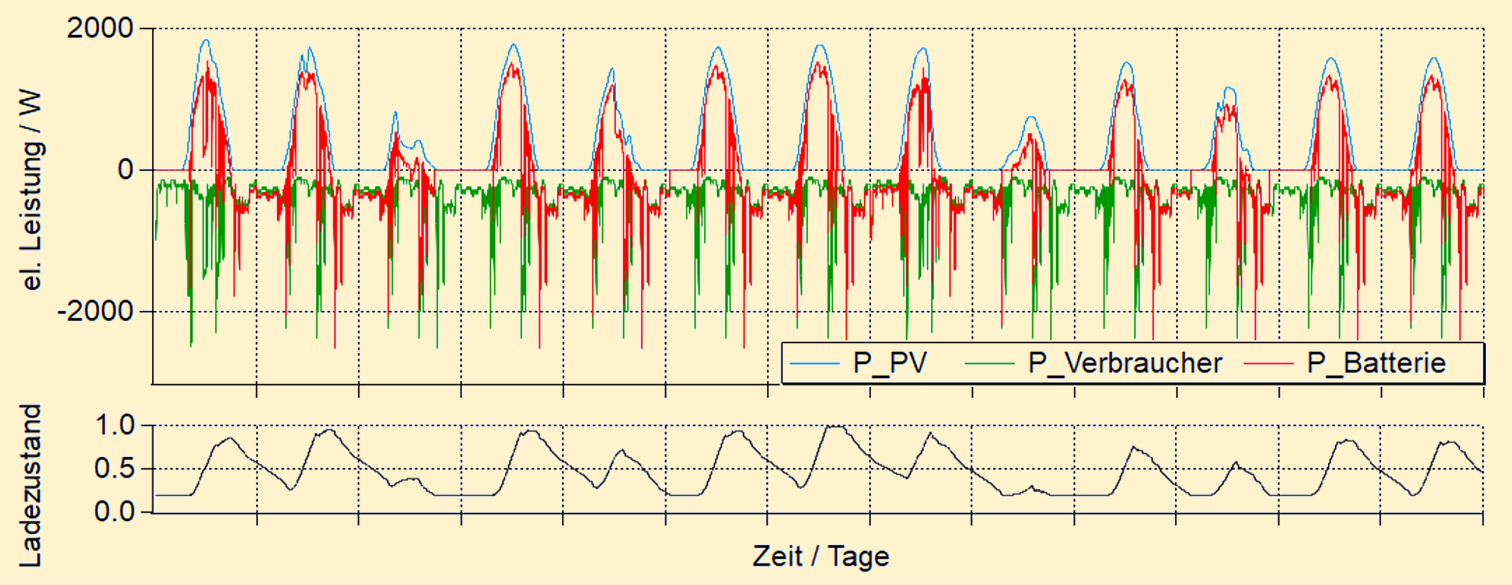
At Fraunhofer ZESS, important questions are answered with the help of simulations. The results serve as a basis for decision-making in various stages of battery development.
System simulation
System simulation addresses the concrete implementation and design of stationary energy storage systems in the form of design calculations, construction-based concept studies, and dynamic models. The results are then directly incorporated into cell development and the design of batteries, battery systems, and hybrid systems.

Model representation of the cell reaction of a sodium-nickel chloride battery.
